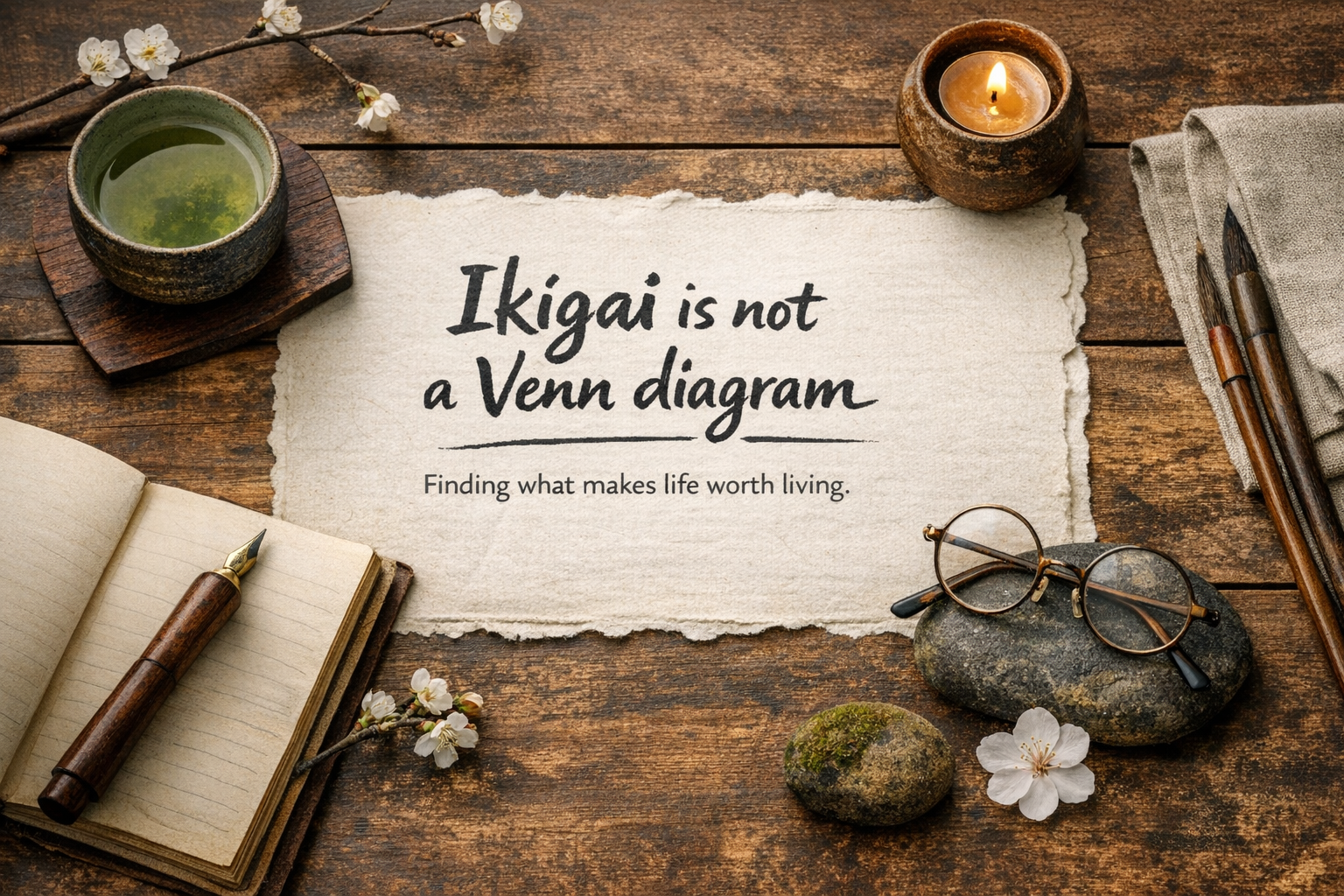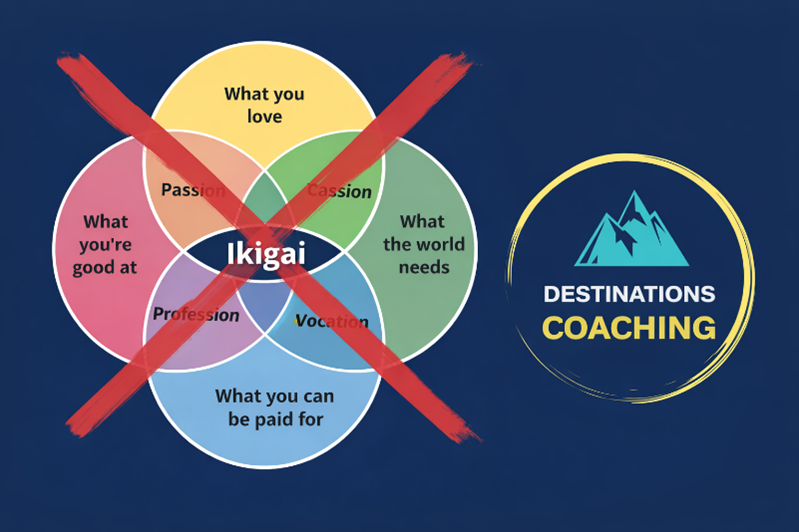
What’s LOVE got to do with it?
After hosting a recent Ikigai webinar, I found myself engaged in a fascinating conversation with an attendee who expressed their struggle with the lack of measurement in the pursuit of Ikigai. The discussion took an interesting turn when they quoted Peter Drucker, emphasising that “that which cannot be measured, cannot be managed.” This sparked a profound reflection on the challenges and nuances of measuring a concept as intricate as Ikigai.
In a world that thrives on objectives and tangible outcomes, the ambiguity surrounding the measurement of Ikigai can be perplexing. We are accustomed to setting clear, measurable goals that provide a road map for achievement. However, Ikigai, with its roots in the Japanese concept of finding purpose and joy in life, often eludes conventional measurement metrics.
In a society driven by competition and a relentless pursuit of success, the idea of simply “being” and appreciating the present moment can feel like a foreign concept. Unlike conventional goals such as landing a job, securing a place on a sports team, or planning a holiday, Ikigai operates in a subjective reality that resists easy measurement.
The analogy that resonates with me when contemplating the measurement of Ikigai is the experience of falling in love. How do you measure such a profound, personal connection? Like love, Ikigai is unique to each individual, and while we can offer advice and guidance, the journey to finding it is inherently personal.
If we view love as a noun, it becomes challenging to quantify; however, if we see it as a verb, measurable actions come into play. Similarly, Ikigai might be measured through the actions we take—such as persisting through challenging tasks or selflessly helping others even in moments of frustration.
The evolving nature of Ikigai adds another layer of complexity to its measurement. The initial passionate feelings, akin to a dopamine high when achieving ambitious goals, may transform into a more internal, calm experience as similar achievements become routine. While the source of Ikigai remains constant, the feelings associated with it may evolve, making measurement a dynamic and intricate process.
In the pursuit of Ikigai, it becomes essential to appreciate the subjective nature of the journey. Unlike conventional objectives, the metrics for measuring Ikigai may not be universally applicable. Instead, it involves a deep, personal exploration that defies one-size-fits-all approaches.
Several Ikigai measurement tools, such as the Ikigai 9 and the Satisfaction with Life Scale, exist to provide frameworks for introspection. However, perhaps the key lies not in relentless measurement but in cultivating what the Japanese refer to as “Ikigai-Kan”—the ability to feel and recognise one’s Ikigai.
As we navigate the unmeasurable terrain of Ikigai, let us embrace the complexity and appreciate the richness it brings to our lives. In a world obsessed with metrics, finding joy and purpose might just be the one thing that cannot be neatly quantified but is undeniably transformative. Instead of focusing solely on measuring our Ikigai, let us invest in the art of feeling it, acknowledging its presence, and allowing it to guide our journey towards a more fulfilling life.
Example Sub Title
Here’s how you can leverage the blog to gain SEO rank:
- Set Bespoke Goals: Begin with the end in mind by setting personalised SEO goals within the app. These are your benchmarks for success.
- Utilise Pre-defined Frameworks: Our frameworks are specially designed to track your SEO outcomes, ensuring that your targets aligns with your site objectives.
- Monitor Progress: Keep a close eye on your stats and track your progress towards your goals.




